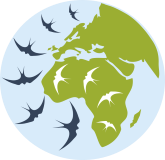Joining and being involved with the MLSG is simple. Just sign up now and prepare and post your profile detailing who you are, what you work on and any specifics of getting involved in meetings, training and mentoring. You will then be part of the MLSG network: people can find you to collaborate and share knowledge, and of course, you can also do the same. There is no membership fee: maintaining your profile annually is the only criteria for active membership, which puts you on the list for early information and reduced rates at MLSG meetings and events.
The MLSG – Migratory Landbird Study Group – is a network to connect people working on migrant landbirds, whether pure research or their conservation, to facilitate both. Collaboration and communication make a difference – particularly when the solution to understanding and conserving migrants must involve all of us on the flyways working together.













